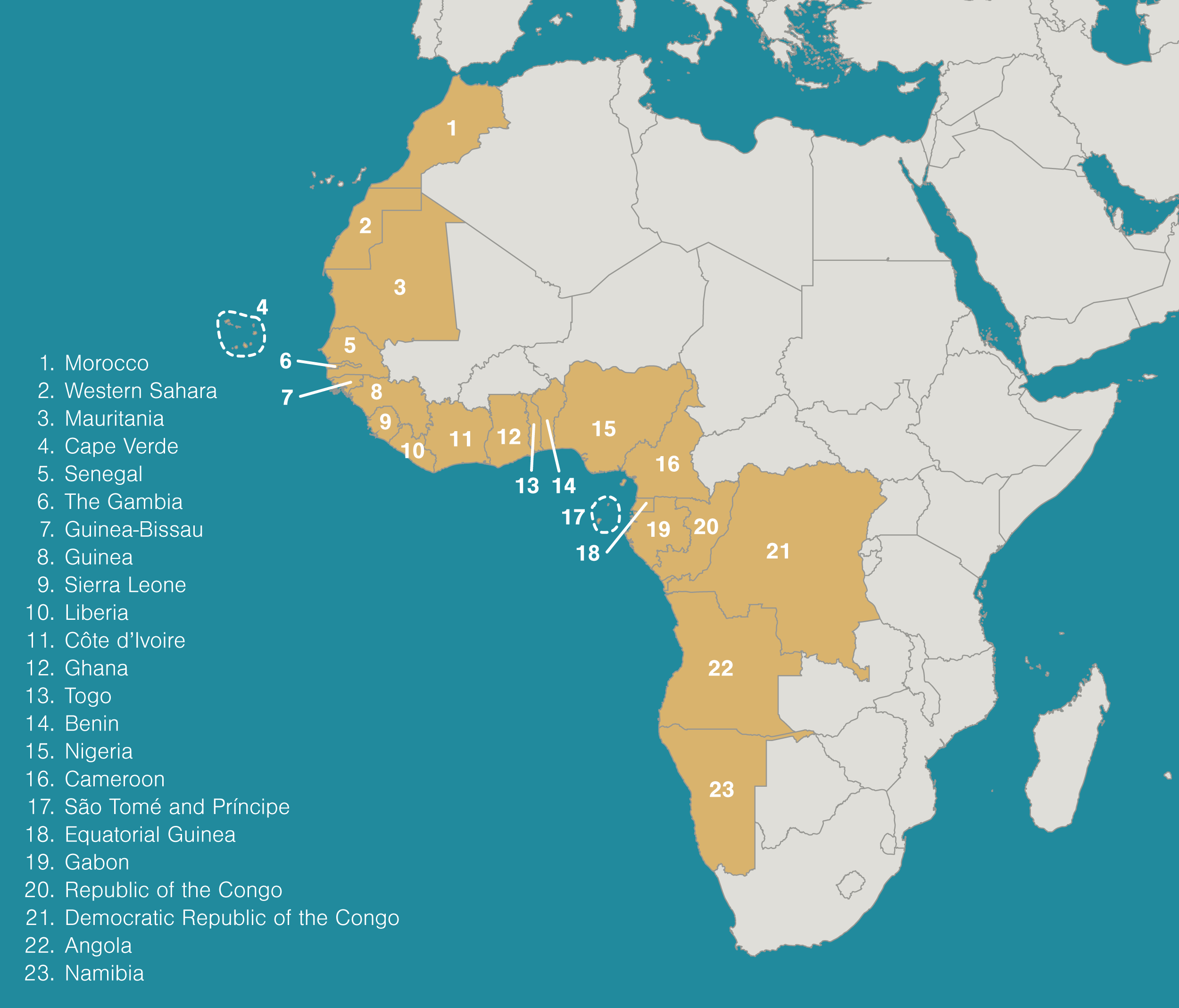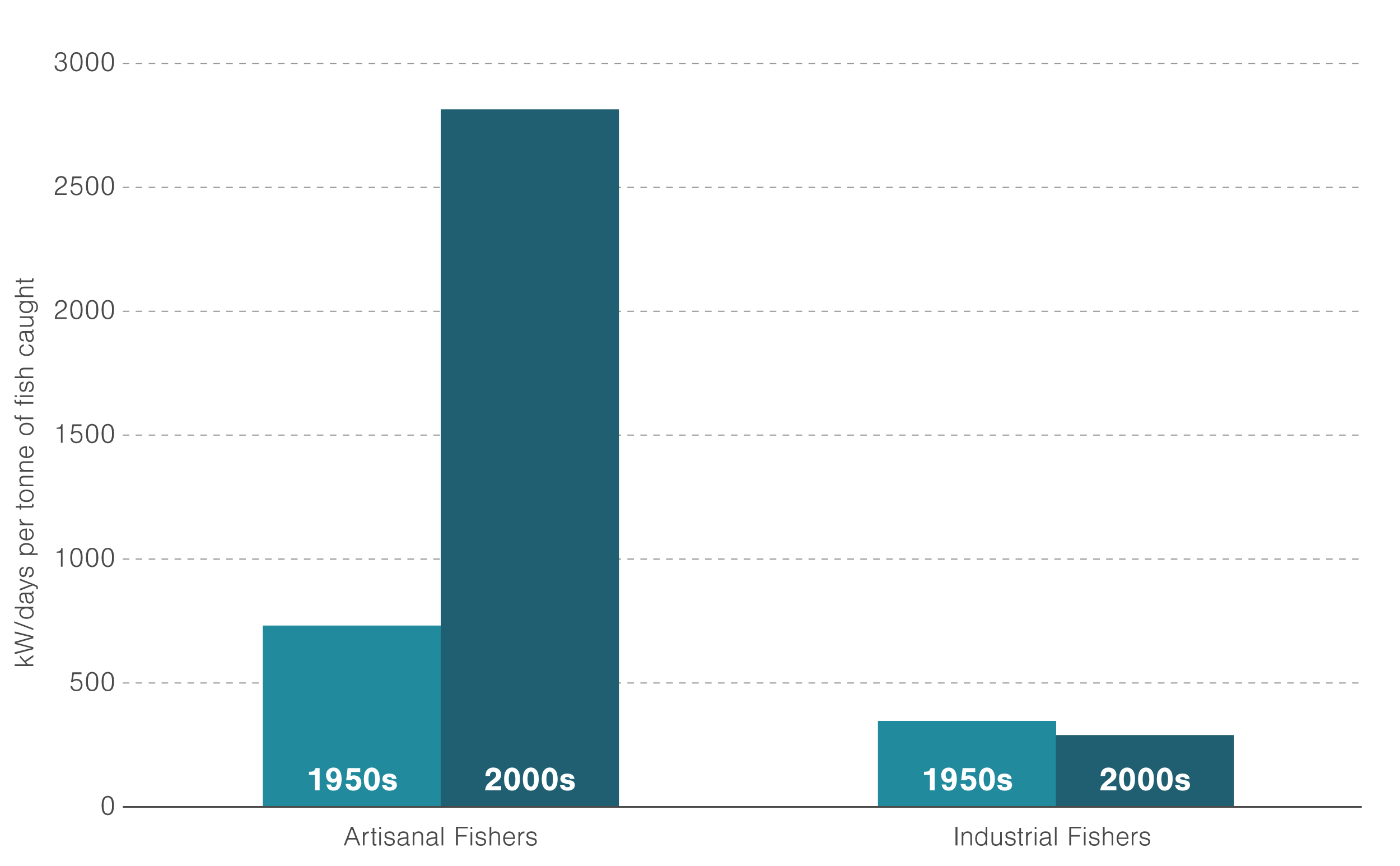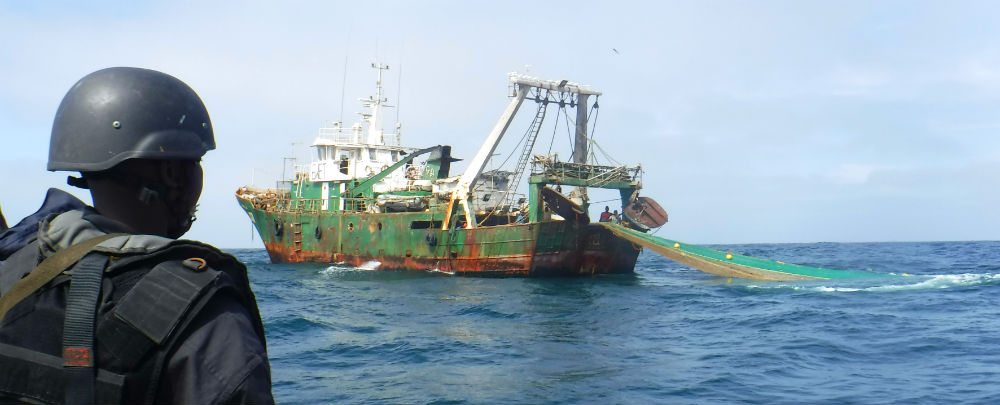Illustration by Mark Garrison
From Hakai Magazine by Kimberly Riskas
It’s illegal and dangerous for industrial boats to encroach on fishing zones reserved for local communities.
Africa’s coastal waters have long been attractive to industrial fishing fleets from around the world. But as valuable fish stocks dwindle, these large vessels are creeping shoreward and illegally crossing into zones reserved for small-scale fishing communities.
Keeping the big boats out is important for regulating catches—but it’s also a matter of life and death for artisanal fishers.
“Every year, collisions with industrial vessels kill over 250 artisanal fishers in West Africa alone,” says Dyhia Belhabib, principal investigator of fisheries at the nonprofit Ecotrust Canada.
Across Africa, she adds, the toll may be as high as 1,000 deaths a year.
The researchers tracked how much energy is needed to catch a fish—whether that’s the horsepower of a fishing boat motor, or the effort of a person casting a net.
They found that while industrial fishing is becoming more efficient, artisanal fishers are having to spend more energy to catch fish than they used to.
Illustration by Mark Garrison
In a new study, Belhabib and her colleagues use publicly available data to unmask the identities of these marauding vessels.
Industrial fishing boats are required to carry an automatic identification system (AIS), which broadcasts information about a ship’s location, size, and nationality.
Looking at four years of satellite AIS signals in African waters, the researchers saw where each ship fished and for how long.
They found that from 2012 to 2016, industrial vessels in African waters spent nearly six percent of their time illegally fishing in protected artisanal zones.
That figure soared for nations that lack enforcement resources, like Somalia, where a staggering 93 percent of industrial fishing occurred in areas reserved for small-scale fishers.
Senegalese Navy personnel board a fishing vessel
Industrial ships flying African flags—particularly from Ghana—were the worst offenders, followed by ships from South Korea, the European Union, and China.
But the high number of ships from Ghana is likely misleading.
A recent investigation revealed that much of Ghana’s national fleet is owned and operated by Chinese companies.
The practice of reflagging boats—when foreign vessels assume the flag of a different country, often one that has lax fishing standards—makes it difficult to enforce penalties for illegal fishing, such as denying permits or subsidies.
“Some of these intruding vessels have criminal pasts, have collided with other boats, have fished illegally,” says Belhabib.
“Maybe high-risk vessels shouldn’t be allowed to have a license to begin with.”
Some African nations, such as Sierra Leone and Guinea, are already using AIS data to catch vessel incursions in real time, says Belhabib.
Yet other countries’ strong industrial fishing lobbies are opposing efforts to expand fleet surveillance.
For local communities already struggling with pollution and climate change, illegal industrial fishing “is an additional stressor that depletes fisheries resources,” says Ifesinachi Okafor-Yarwood, a research consultant for Colorado-based One Earth Future who was not involved in the study.
This has far-reaching implications for social development and the attainment of multiple sustainable development goals.
“Fish is not just a source of protein,” Okafor-Yarwood explains.
“It also provides income to pay for healthcare and education.”
Links :
- HakaiMag : West Africa’s Artisanal Fishers Rival the Industrial Fleet / Foreign Fleets Plundered Somalia’s Fish
- Mongabay : Illegal industrial fishing hampers small-scale African fisheries
- CNN : The great fish robbery that costs Africa billions
- UN : Safeguarding Africa’s fishing waters / Africa starts a fishing ‘revolution’
- AlternativeAfrica : Africa looses $1.3 Billion to foreign illegal fishing
- GeoGarage blog : China's appetite pushes fisheries to the brink / Tackling illegal fishing in western Africa ... / Fishing fleets have doubled since 1950 ... / New ocean reserve, largest in Africa ... / West African fishing communities drive off ... / New maps show the utterly massive imprint of fishing on the ...



No comments:
Post a Comment